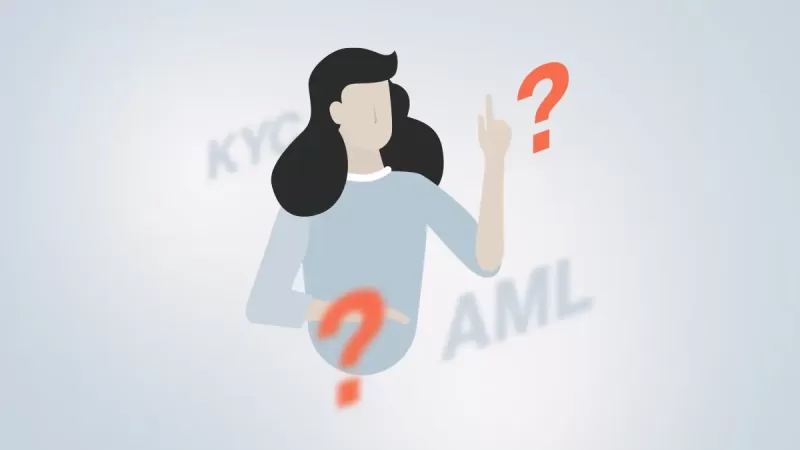At first glance, the Know Your Customer (KYC) process might appear as if it’s only applicable to financial institutions. Truth is that KYC is good practice for any company that wants to know they can trust their clients, vendors and partners. For example, in the US, it is illegal to sell any civil aircraft to sanctioned countries. Let’s take a closer look at KYC in aviation and why it’s essential.
What is KYC?
Introduced with the Patriot Act, KYC is a set of regulatory procedures used to verify a customer’s identity and evaluate what fraud risk they may pose. Although some airlines may use less strict KYC guidelines, following the example of banks is good practice. The stricter a company is with KYC compliance, the less likely it is to be subject to fines, scandals and unsatisfied customers.
The KYC process involves three major steps:
- Customer identification: a customer’s identity is verified by checking the provided KYC documents during this step.
- Customer Due Diligence (CDD): a process that involves the collection of all necessary information about the customer. The data is gathered from verified and reputable sources to analyse the risk factors of the customer. This involves Politically Exposed Persons (PEPs) screening, sanctions screening and adverse media screening. If any of these turn up red flags, clients may be subject to Enhanced Due Diligence (EDD).
- Ongoing monitoring: especially in the case of enhanced due diligence, compliance does not end with the onboarding of a client. To ensure that a customer remains who they say they are and does not pose future risks, their data should be subject to ongoing monitoring throughout the whole client lifecycle.
Why does the Aviation Industry Need KYC?
Although the easy answer is that it’s a legal requirement, let’s take a closer look how KYC compliance comes into play in aviation. This can be separated into three parts:
Employees
Any employee working at an airline or airport, from janitors to head executives, needs to be thoroughly checked. This includes extensive background checks, gathering the necessary information, former employment history and where the employee resided at one point or another. Even after this process is passed, employees might still be subject to biometrics checks every time they check in for work to ensure no one else is trying to pose as them.
Suppliers
Many countries have laws against doing business with sanctioned countries. It’s one of the most important security measures to prevent money laundering and terrorist financing. However, recognizing vendors and suppliers isn’t always easy. Many bad agents may hide behind fake owners and aliases. In those cases, KYC helps any business identify sanctioned parties, keep an eye on high-risk clients and determine whether a possible business relationship is too high-risk.
Travellers
We all know how strict airlines are with passengers, and for good reason. Which is another way KYC processes are used. All passengers need to be identified and provide their documents, which have to be checked, and their validity and authenticity need to be confirmed. However, this can often be a pain for many travellers. That is why many airports are implementing automated passport checks with the help of KYC software. The faster you can confirm a passenger’s information, the happier they’ll be.
Why is Digital KYC Better?
When it comes to processes like KYC, technology can be much more effective for several reasons:
Price
The manual verification process requires much more resources, such as labour, office space, technology, training, etc. The cost of a well-trained KYC specialists’ team tops the price of any software. Implementing an automated customer identification program can cut resources by more than half. A KYC check of one customer can cost less than €1 by using a solution like Ondato. The price can be even lower depending on the number of verifications you need to perform.
Processing Time
Onboarding time is crucial to the flow of business. That’s why it’s imperative to make the process as fast as possible to avoid losing clients. Employing a paper-based process can take up to 18 minutes to complete a KYC check. Meanwhile, depending on the process you choose, the Ondato system completes the process in under 90 seconds.
Success Rate
Human error can often hinder manual processes. Mistakes can occur due to a lack of properly trained employees, fatigue, and lack of focus. The newest KYC technology can map out the biometric data of a client’s face and ensure no spoofing methods are involved in the verification process. The technology also checks the document’s authenticity by efficiently spotting any alterations. All of this combined results in a 99.8% success rate.
Ensuring KYC compliance
As Anti-Money Laundering (AML) regulations are subject to change, finding a tool that takes care of it for you is the best way to ensure your business is never in non-compliance. That way, you can guarantee your business is protected from bad agents and AML fines without having to worry about it every day. Ondato allows you to adapt to any changes, get familiar with your clients, and continue monitoring after onboarding.



